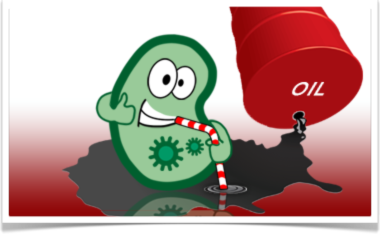Team:TU Delft/Project/alkane-degradation
From 2010.igem.org
Lbergwerff (Talk | contribs) (→Alkane Degradation) |
|||
| (2 intermediate revisions not shown) | |||
| Line 1: | Line 1: | ||
{{Team:TU_Delft/frame_check}} | {{Team:TU_Delft/frame_check}} | ||
| + | __NOTOC__ | ||
==Alkane Degradation== | ==Alkane Degradation== | ||
[[Image:TUDelft_Degradation.png|300px|right]] | [[Image:TUDelft_Degradation.png|300px|right]] | ||
| - | Pollution of soil and water environments by crude oil has been, and is still today, an important environmental issue. Crude oil is a complex mixture of thousands of compounds, of which alkanes constitute the major fraction. Alkanes are saturated hydrocarbons of different sizes and structures. Although they are | + | Pollution of soil and water environments by crude oil has been, and is still today, an important environmental issue. Crude oil is a complex mixture of thousands of compounds, of which alkanes constitute the major fraction. Alkanes are saturated hydrocarbons of different sizes and structures. Although they are chemically relatively inert, several micro-organisms can efficiently degrade most of them. Literature research has revealed a number of genes that are most likely responsible for this degradation. These genes will be implemented into ''E.coli'' using the BioBrick standard and their alkane degrading capabilities will be characterized. On the alkane degradation a [https://2010.igem.org/Team:TU_Delft#page=Modeling/MFA metabolic flux analysis] was performed to determine the maximal yield for biomass growth on alkanes. |
Latest revision as of 19:54, 27 October 2010
Alkane Degradation
Pollution of soil and water environments by crude oil has been, and is still today, an important environmental issue. Crude oil is a complex mixture of thousands of compounds, of which alkanes constitute the major fraction. Alkanes are saturated hydrocarbons of different sizes and structures. Although they are chemically relatively inert, several micro-organisms can efficiently degrade most of them. Literature research has revealed a number of genes that are most likely responsible for this degradation. These genes will be implemented into E.coli using the BioBrick standard and their alkane degrading capabilities will be characterized. On the alkane degradation a metabolic flux analysis was performed to determine the maximal yield for biomass growth on alkanes.
Continue reading

 "
"
